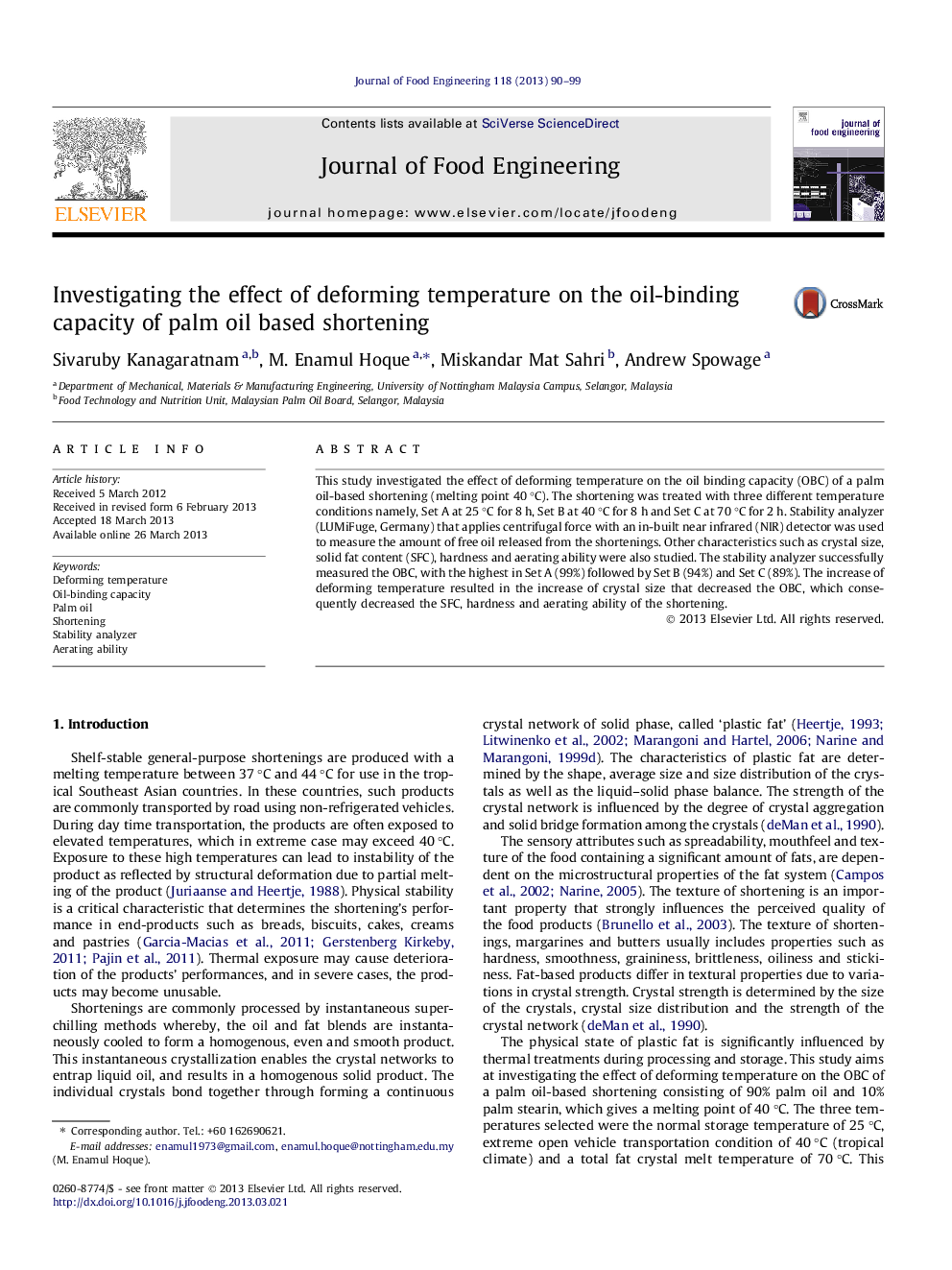| Article ID | Journal | Published Year | Pages | File Type |
|---|---|---|---|---|
| 10277482 | Journal of Food Engineering | 2013 | 10 Pages |
Abstract
This study investigated the effect of deforming temperature on the oil binding capacity (OBC) of a palm oil-based shortening (melting point 40 °C). The shortening was treated with three different temperature conditions namely, Set A at 25 °C for 8 h, Set B at 40 °C for 8 h and Set C at 70 °C for 2 h. Stability analyzer (LUMiFuge, Germany) that applies centrifugal force with an in-built near infrared (NIR) detector was used to measure the amount of free oil released from the shortenings. Other characteristics such as crystal size, solid fat content (SFC), hardness and aerating ability were also studied. The stability analyzer successfully measured the OBC, with the highest in Set A (99%) followed by Set B (94%) and Set C (89%). The increase of deforming temperature resulted in the increase of crystal size that decreased the OBC, which consequently decreased the SFC, hardness and aerating ability of the shortening.
Keywords
Related Topics
Physical Sciences and Engineering
Chemical Engineering
Chemical Engineering (General)
Authors
Sivaruby Kanagaratnam, M. Enamul Hoque, Miskandar Mat Sahri, Andrew Spowage,
